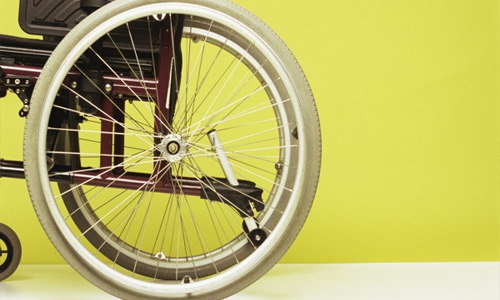Since 1992, the International Day of Persons with Disabilities (IDPD) has been annually marked on 3 December around the world. The theme that has been chosen for 2019 IDPD is ‘promoting the participation of persons with disabilities. This theme focuses on the empowerment of persons with disabilities for inclusive, equitable and sustainable development. In accordance with the chosen them, the Independent Administrative Reform and Civil Service Commission (IARCSC) announced good news for Persons with Disabilities which is undertaking a new policy that will help persons with disabilities to be enrolled in Afghan institutions. “This procedure provides conveniences and facilities at various levels of employment for persons with disabilities,” report quoted from IARCSC chairman Nader Nadery.”
However, it is too hard to satisfy all needs of disabled community as they comprise a large part Afghan population while Afghanistan is not an ideal fiscal condition to cope everything. According to Ministry of Labor, Martyrs, Disabled and Social Affairs, the number of disabled who have been registered at the ministry and receive their salaries has reached to 120,000, while the number of Afghan disabled is more than 1 million and every registered Afghan disabled receives 60,000 Afghani annually. But based on the statistics of the human rights commission, persons with disabilities make up 2.7% of the population, and they faced numerous challenges and problems for having access to their most fundamental rights, such as the right to education, the right to health and rehabilitation, the right to work, the right to housing, and so on.
As pointed out, there are several issues which mortify people with disability, but the main problems which annoy Afghan disabled and non-disabled are unemployment. Legally, at least 3% of public positions must be allocated to personas with disability, but disabled activists are not satisfied saying their share is not above than 1% at practice. In the current unemployment environment, it is said that nearly 10% of people with disability (PwD) earn living through begging on the Road-side, streets, and in front mosques or markets which intensified the already congested city. Thus majority of children with disabilities do not go to school. The National Disability Survey found that over 72% of persons with disabilities are over six years old that not received any education. Though unemployment is a general problem in Afghanistan, it severely affects the disabled people. Scientifically, it has been proved that unemployment has severe negative psychological effects on individuals resulting depression, lack of motivation, anger and anxiety. Employers usually hire people who are healthy and have work experiences which are another disadvantage for unemployed people with disability. As a result, It is estimated that 90% of PwD living in extreme poverty, joblessness and also lack professional skills to join public or private sector of the country.
It seems that our country is unable to address all the problems and challenges of people with disabilities due to a lack of resources (financial and professionally trained staff), and adverse security challenges throughout the country. If the International community can provide financial opportunities to PwD, they are capable to play a major role in social, cultural and also economic growth of the country. Studies show that all people have the potential for self-sufficiency when given access to educational and economic opportunities and remove physical and social barriers.
The second problem is that people with disability still face discrimination in society. In Afghan environment, people do not have cooperative view and respective behavior with them in community as considered as a burden on shoulder of families. Therefore, women and girls with disabilities live in extremely difficult situations being discriminated both as females and as persons with disabilities e.g. legal and economic obstacles, exclusion and stigmatization. According to experts, in order to help persons with disabilities, there is a need to institutionalize a culture of respect for them in the society. “It’s possible to issue a decree, make a law and implement it with a signature, but the main issue is to promote a culture for this,” report quoted from Farid Hamidi, the Attorney General of Afghanistan.
The third problem for people with disabilities is limitation to access basic services, and there are many barriers and obstacles for their accessibility in public places including schools, hospitals, libraries and mosques; the public building do not have ramps, suitable washrooms for person with disabilities. Therefore, they face more challenges than other persons in order to continue their higher education, eventually they forcibly leave the education and cannot continue their higher education, and due to full of depression, dire economic circumstance they become despondent and they live with dismal, especially adolescent girls, they experience significant difficulties.
Lastly, in addition to holding preventive strategies, the people with disabilities must be supported by both government and society. Article 53 of national constitution of Afghanistan recognize the rights of people with disabilities and advise for taking necessary measures to promote their lives. Accordingly, Afghanistan has adapted the Convention on the Rights of Person with Disabilities which offers sufficient standards of protection for the civil, cultural, economic, political and social rights of persons with disabilities on the basis of inclusion, equality and non-discrimination. It makes clear that persons with disabilities are entitled to live independently in their communities, to makes their own choices and to play an active role in society. Thus, the general spirit of national and international law indicate that all citizens have equal right to have access to education, health care services, public facilities and other services in order to meet their basic needs of lives.
Home » Opinion » Rights of Persons With Disabilities in Afghanistan
Rights of Persons With Disabilities in Afghanistan
| Mohammad Zahir Akbari

